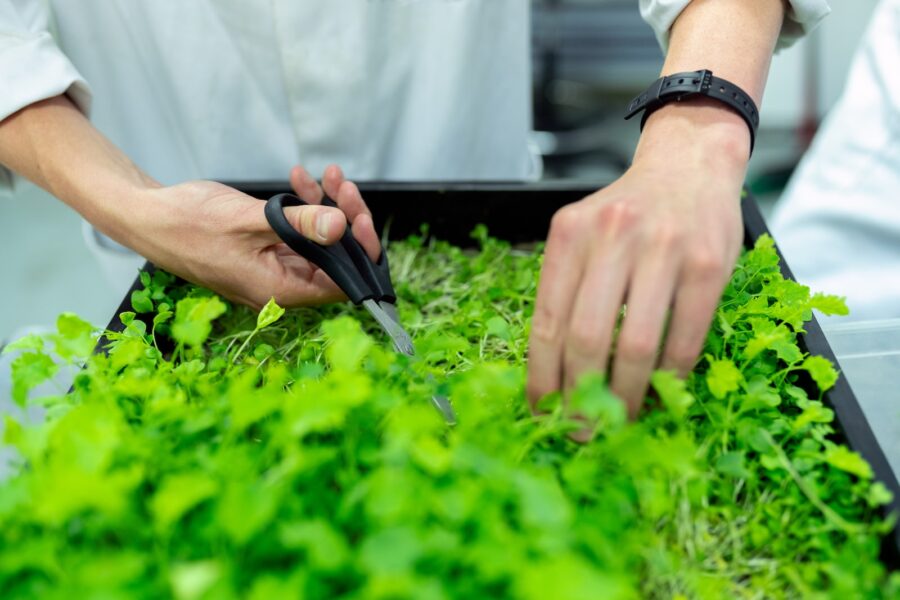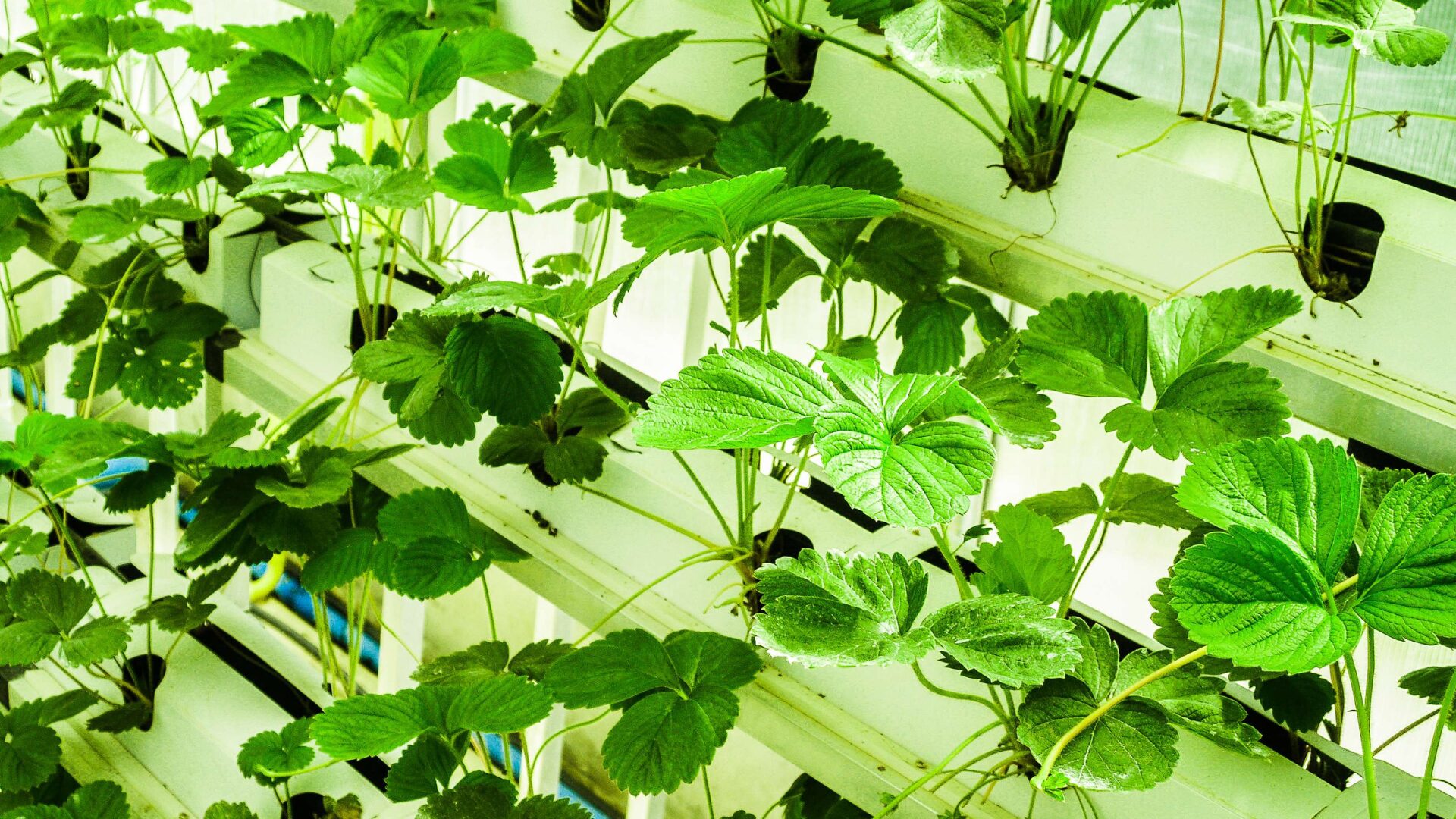Square Roots and Gordon Food Service have expanded their effort to make locally grown food available more widely, opening a 2 million-plant indoor, climate-controlled farming facility inside Gordon’s Springfield, Ohio, distribution center.
The farm has the capacity to grow more than 2.4 million packages of leafy greens and herbs annually, Square Roots said. The operation uses a modular, climate-controlled platform. Software constantly monitors and controls multiple climates, allowing a number of crops to be grown simultaneously.
“Since 2019, we’ve been on a journey with Square Roots, delivering on our vision to make locally grown, nutritious produce available to our customers, regardless of outdoor weather conditions or the time of year,” Rich Wolowski, president and CEO of Gordon Food Service, said in a press release.
Gordon Food Service is one of the largest U.S. food distributors, servicing restaurants, schools, hospitals and retail stores.
In other agriculture news:
Organic: The Organic Produce Network and Category Partners reported third quarter figures indicating that though consumers are buying less organic produce, inflation has pushed revenues for the category up 4.1%, The Packer reported.
By volume, organic sales were off 4.5%, according to the report, which was based on Nielsen IQ syndicated date. Prices rose 8.9%, bringing revenue to $2.4 billion for the quarter that ended September 30. At the same time, the price of conventional produce was up 10% to $17.93 billion.
Poultry rules: The U.K.’s Food Standards Agency is relaxing rules to allow turkeys, geese and ducks to be slaughtered early so they can be frozen in advance of the holiday season to fight the effects of bird flu, The Grocer reported. The new rules allow for the frozen birds to be defrosted between November 28 and December 31, and sold as chilled. The U.K. has lost nearly 7% of its commercial turkey flock to avian influenza, and the losses were expected to double in coming weeks.
Agave: Continuing severe drought in California has prompted farmers to look at agave, the drought resistant succulent used to make tequila and mezcal, Californiaagnet reported. The University of California, Davis, is spearheading research into the plants, which also can be a source of fiber and alternative sweetner.
“As a drought-tolerant plant, agave holds great potential in water-stressed California,” said Central Valley farmer Stuart Woolf, who along with his wife Lisa, has planted 900 plants on 1.5 acres.












